-
 +18 +4
+18 +4Baby born from three people's DNA in UK first
Most of the baby's DNA comes from their two parents, with a small percentage from a donor.
-
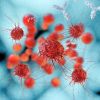 +3 +1
+3 +1New blood test could spare cancer patients from needless chemotherapy after surgery
We have no reliable way of knowing which patients’ cancer will return after surgery, so often chemotherapy is given to mop up any remaining cancer cells that may have gone undetected.
-
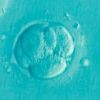 +18 +2
+18 +2Experts Conclude Genome Editing in Human Embryos Still Too Risky
The Third International Summit on Human Genome Editing has concluded, and experts have agreed that human genome editing is not ready The Third International Summit on Human Genome Editing has concluded, and experts have come to a consensus that, “Heritable human genome editing remains unacceptable at this time,” according to their statement.
-
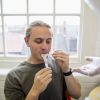 +24 +3
+24 +3Is Saliva the Next Frontier in Cancer Detection?
In the late 1950s, dentist and U.S. Navy Captain Kirk C. Hoerman, then a young man in his 30s, attempted to answer a bold question: Might the saliva of prostate cancer patients have different characteristics from that of healthy people? Could it contain traces of a disease that’s so far away from the mouth?
-
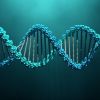 +20 +3
+20 +3Aging Is Linked to More Activity in Short Genes Than in Long Genes
A detailed examination of gene activity in various organisms, including humans, reveals a new hallmark of the aging process
-
 +4 +1
+4 +1Scientists Are Reincarnating the Woolly Mammoth to Return in 4 Years
Hello, old friend.
-
 +4 +1
+4 +1The Cause of Depression Is Probably Not What You Think
People often think they know what causes chronic depression. Surveys indicate that more than 80% of the public blames a “chemical imbalance” in the brain. That idea is widespread in pop psychology and cited in research papers and medical textbooks. Listening to Prozac, a book that describes the life-changing value of treating depression with medications that aim to correct this imbalance, spent months on the New York Times bestseller list.
-
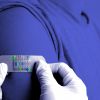 +15 +3
+15 +3Next up for CRISPR: Gene editing for the masses?
Last year, Verve Therapeutics started the first human trial of a CRISPR treatment that could benefit most people—a signal that gene editing may be ready to go mainstream.
-
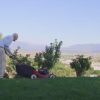 +4 +1
+4 +1Old mice grow young again in study. Can people do the same?
All mammals hold a backup copy of cellular youth, a new study says. All we have to do is trigger the switch to turn back the clock, researchers say.
-
 +13 +1
+13 +1Scientists Have Reached a Key Milestone in Learning How to Reverse Aging
The finding involves mice, but represents an important milestone in understanding what causes cells to age.
-
 +18 +3
+18 +3A More Elegant Form of Gene Editing Progresses to Human Testing
Instead of cutting out chunks of the genome to disable malfunctioning genes, base editing makes a smaller, more precise swap.
-
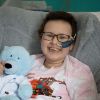 +14 +2
+14 +2Experimental CRISPR technique has promise against aggressive leukaemia
A 13-year-old girl whose leukaemia had not responded to other treatments now has no detectable cancer cells after receiving a dose of immune cells that were genetically edited to attack the cancer.
-
 +18 +4
+18 +4DNA from elusive human relatives the Denisovans has left a curious mark on modern people in New Guinea
Humanity carries traces of other populations in our DNA – and a new study shows how one of these ancestors has influenced the immune systems of modern Papuans.
-
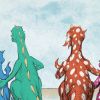 +13 +4
+13 +4People don't mate randomly – but the flawed assumption that they do is an essential part of many studies linking genes to diseases and traits
People don’t randomly select who they have children with. And that means an underlying assumption in research that tries to link particular genes to certain diseases or traits is wrong.
-
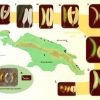 +15 +2
+15 +2Domestication History of Bananas is More Complex Than Previously Thought
New research led by the global research-for-development organization Bioversity International confirms that the genomes of today’s domesticated banana varieties contain traces of three extra, as yet unknown, ancestors.
-
 +13 +5
+13 +5Banana Genomes Hint at Hidden Species We Urgently Need to Find
The history of the banana is more complicated than you might have ever imagined (if you ever thought about it at all).
-
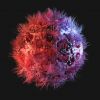 +1 +1
+1 +1A bold effort to cure HIV—using Crispr
Key is whether the gene-editing technology can stop the virus from replicating.
-
 +14 +3
+14 +3The Viruses That Fight Disease - Weizmann Wonder Wander
The myriads of microbes in our gut, collectively termed the microbiome, are considered important to our health, but they can also harbor bacteria that contribute to inflammatory bowel disease or other disorders. Currently, however, it is impossible to target such disease-contributing bacteria without harming the surrounding beneficial microbes.
-
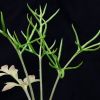 +12 +1
+12 +1Ferns Are Super Weird – And Their Genomes Are Even More Chaotic Than We Thought
There's something really peculiar about ferns.
-
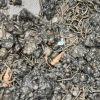 +17 +1
+17 +1Huge plan to map the DNA of all life in British Isles
Seventy thousand species. That’s the best guess for the tally of life, including plants, animals and fungi, found in Britain and Ireland. And it’s the target of one of biology's most ambitious projects - scientists want to map the DNA of every single one of these organisms.
Submit a link
Start a discussion




















